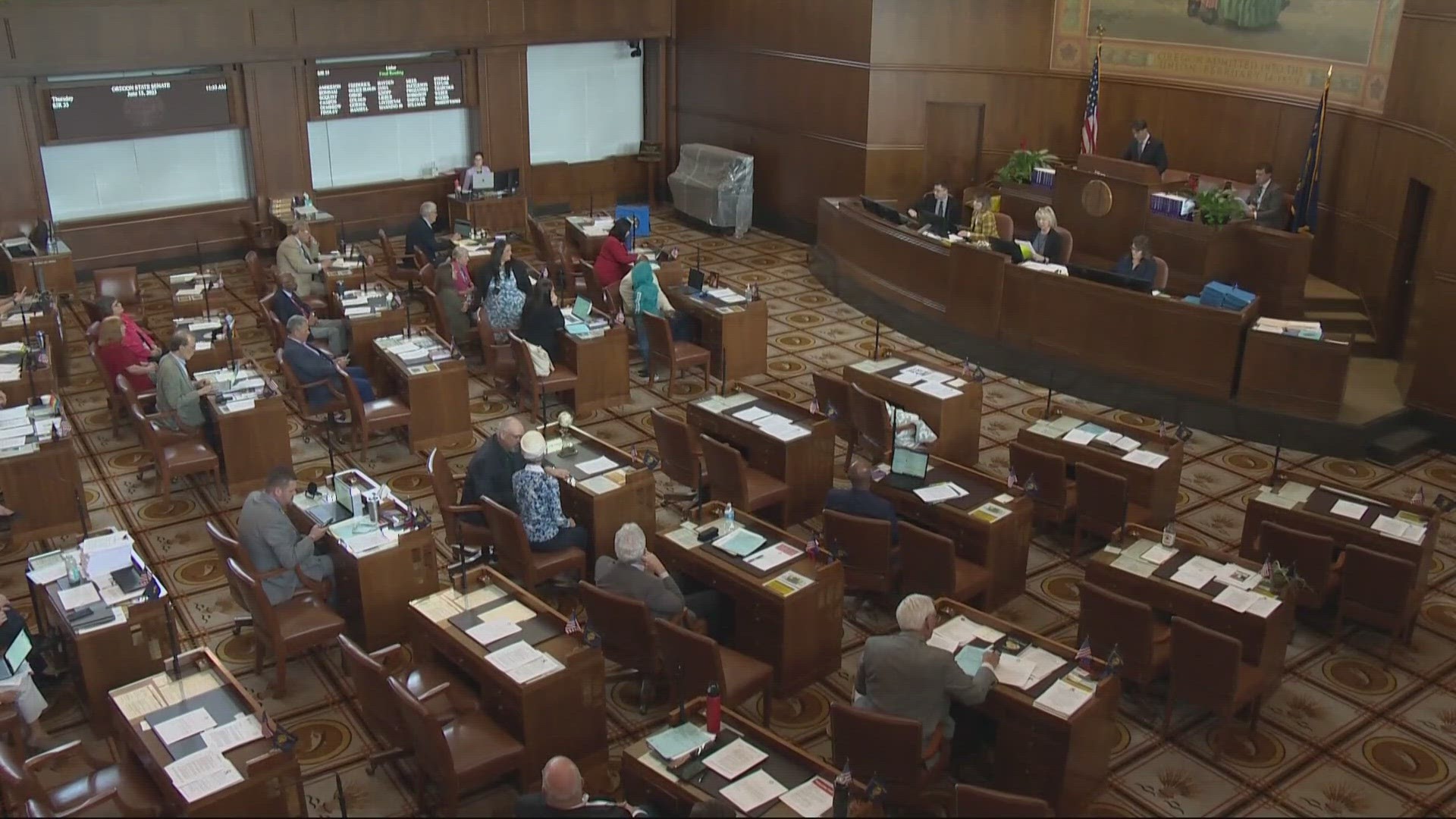SALEM, Ore. — Oregon lawmakers meet on Monday to start the 2024 legislative session. It's a short session and will run through March 10 at the latest.
Last week, Oregon legislative leaders outlined their priorities for the session. Housing, homelessness and addiction issues all topped the list, with work also planned on economic issues like the state's semiconductor industry and the downtown Portland business scene.
Gov. Tina Kotek said her number one focus will be on spurring housing production across the state, which she said is the ultimate solution to homelessness issues.
She pointed to Senate Bill 1537, which she described as "a comprehensive approach to jumpstart housing production." It will establish a Housing Accountability and Production Office tasked with having build-ready plans and model codes for communities to adopt, serving as an intermediary for the building industry.
"Oregonians know the status quo is not working," she said. "This bill is a pathway to production."
The bill will also include a one-time tool to allow cities to expand their urban growth boundaries to free up more land for affordable housing if they can meet certain criteria, although Kotek stressed that it's just one part of the package. The tool requires 30% of new development within the expansion areas to be affordable, she noted, which differentiates it from similar effort that fell short in the previous session.
"Land supply is part of the conversation we need to have," she said.
The package also features climate incentives, Kotek said, along with a $500 million investment from existing state resources to fund financing for infrastructure and site acquisition. She said the bill is the product of months of work, and while she expects some technical changes as it works its way through the legislative process, it's imperative that it ultimately passes.
She said she's also requested $65 million to make sure existing homeless shelters keep operating, as well as $35 million to invest in homelessness prevention measures like rent assistance.
Asked about proposed legislation to reform Measure 110 and re-criminalize drugs, Kotek said she thought lawmakers are moving the right direction, but said her current focus is on making sure the state has resources and capacity for treatment programs.
Senate President Rob Wagner, Majority Leader Kate Lieber and Minority Leader Tim Knopp also put the spotlight on housing and the drug crisis.
RELATED: Oregon governor, Portland mayor and Multnomah County chair declare coordinated fentanyl emergency
"We will be focused on reducing homelessness, increasing affordable housing, improving public health and safety, and strengthening our schools and the economy," Lieber said in a statement.
Knopp called for a major overhaul of Measure 110, with enhanced penalties for drug dealers, including raising penalties for drug dealers who sell to buyers who later overdose and die.
Asked about the possibility of another Republican walkout, Knopp said Republicans aren't taking anything off the table. He noted that the Oregon Supreme Court decision on Measure 113 is expected Thursday but said Republicans will "win either way" because the court will either uphold their challenge, or if it doesn't, "our members literally have no reason to show up."
When asked if there's an issue where the two parties are very far apart at the moment, Knopp replied, "Not on issues that are going to be addressed in this session."
House Speaker Dan Rayfield said House Democrats will focus on legislation to keep people housed and build more housing, and work on making sure the state's comprehensive plan address the issue of addiction. He said that there's also a $50 million investment in the works for Oregon's semiconductor industry.
"We're in a good position to tackle these issues. The state has budgeted well over the years," Rayfield said.
House Minority Leader Jeff Helfrich labelled Measure 110 "the biggest crisis we are facing right now" and said he wanted to focus on solutions to fix the controversial legislation.
"Accountability through the criminal justice system, but we also have to have that compassionate care and I believe those are the two things that are going to drive the conversation for Measure 110," Helfrich said.
Kotek, who has been non-committal on potential re-criminalization of small amounts of drug possession as part of Measure 110 reform, said she would look to see what else is included in the package.
"Re-criminalization in isolation, I think, it's missing the point," Kotek said. "So my question is going to be - if [the] legislature is suggesting a change, what else are you going to do differently to make sure we have better outcomes," she asked.
Helfrich also called for efforts to bring down housing costs and general cost of living.
House Majority Leader Julie Fahey said the session would tackle what she identified as four key barriers to improving the housing supply: infrastructure funding, land supply, regulatory barriers and financing.
Fahey added that fighting community addiction means expanding treatment facilities and incentivizing workers — either through higher pay, apprentice programs, or other initiatives.
"For behavioral health and the addiction crisis — we all know that we need more access to treatment facilities and amore streamlined and coordinated system of care in Oregon and for that to happen, we need more facilities and we need a bigger workforce," Fahey said.
The short session length means there won't be time to tackle every pressing issue, and Rayfield and Helfrich said broader transportation infrastructure and tolling issues are likely to be taken up in the 2025 session, with early conversations happening during 2024.

